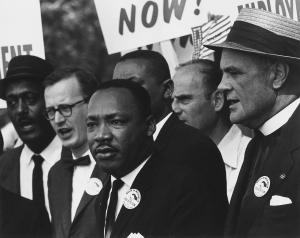As the son of a church musician I spent plenty of nights, like Samuel, "lying down in the temple of the Lord" (1 Sam. 3:3). The church had been, for me, a place of profound belonging. Then I spent four years working with young people in some really challenging circumstances: children with emotional/behavioral disabilities in public schools; runaway, homeless, and street-dependent youth in shelters; teens caught in violent dating relationships. Faced with the stories of children who felt like they belonged nowhere, I wanted to know where the church was for them and what more it could be doing.
I was drawn into parish ministry when my personal experience of the church as a place of belonging and the center of God's shalom came into contact with the hurts and the needs of God's wounded world. So I put my life in boxes and said goodbye to people and places I loved so that I could prepare to be a pastor by entering a master of divinity program far from home. I was able to do so gladly, because I felt like I was giving my life to something vital and important, something that tapped into my passion.
Ten years later—after I'd completed four years of classroom work, one year of full-time internship, and served three years as a solo pastor for a congregation in redevelopment—the going was tough. My connections to the wider church beyond the doors of the congregation I served were mainly through our denomination, and those conversations were filled with anxiety. "The Decline of the Mainline Church" was the subtext for far too many denominational conversations, showing up in discussions of layoffs at the national level and closures at the local level. The weight of these conversations left very little room for the passion that had drawn me into ministry in the first place.
This is the position many of the church's emerging leaders find themselves in today. Whether they were wooed over time or transformed in an instant, young clergy set aside other possible lives in favor of this one because they have been changed by a relationship with God and they want to be a part of God's work in the world. That motivation is hard to sustain under the best of circumstances, and even harder when all anyone wants to talk about is the death of the church.
At about this time, I was invited to attend the Emerging Leaders Institute, a project of the Plymouth Center for Progressive Christian Faith out of Plymouth Congregational Church in Minneapolis, Minnesota. The Institute paid my way to a beautiful retreat setting shared with an ecumenical handful of experienced pastors and a couple dozen new pastors like myself. It restored my soul. Here's how:
Although each of us in attendance was painfully aware of our own denominational realities, in an ecumenical setting it was easier to remember that the church called to serve God's mission is so much larger than any expression of the church in which we might be laboring. As a result, we spent less time talking about organizational survival and more time talking about the kinds of passions that brought us to ministry in the first place. I left feeling reconnected to the source of my call and excited about my ministry.
I was able to network with other pastors who not only shared my experience of being at the front end of a career in ministry, but who also shared my enthusiasm for a progressive, generous, world-changing expression of Christianity. Being in a place where I could find myself in and among the lives and ministries of a new set of colleagues reignited my hope for the church of the future.
At the same time, I got to sit at the feet of experienced pastors, champions of social justice movements and prophetic leaders across the church. People like Jim Gertmenian, whose congregation in Minneapolis has been leading the way and setting the example for how communities of faith can respond to homelessness. I was equipped with models for the kinds of ministry I want to be doing and, even more, I was building relationships with people who have become mentors to me.
That was three years ago. In the interval, the Emerging Leaders Institute has continued to provide young clergy with incomparable opportunities to network and forge relationships with leaders from across the church. Last year we were treated to a preview of some of the research in Diana Butler Bass' new book Christianity after Religion, presented by Diana herself! This summer we're looking forward to being addressed by Parker J. Palmer and Marcy Jackson of the Center for Courage and Renewal who will guide us into the theme of Parker's most recent book, Healing the Heart of Democracy. The Institute provides young clergy with much-needed support and guidance in keeping their role as pastors connected to their souls as people called into public ministry by a personal and passionate encounter with God in Christ Jesus.




